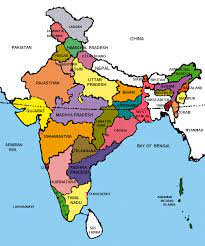Geographical Basis of Indian Federalism is an important tool to understand India’s Unique Political System. India is the world’s largest democracy with a unique political system that is based on federalism. The country is divided into 28 states and 8 Union territories, each with their own government and administrative structures. The federal structure of the Indian political system is based on a strong emphasis on regional representation and decentralization of power.

Table of Contents
The Geographical Basis of Indian Federalism
The geographical basis of Indian federalism is rooted in the country’s diverse cultural, linguistic, and religious identities. India has a complex history of different empires and kingdoms ruling over different regions, leading to the development of distinct identities and cultures. This diversity is reflected in the federal structure of the country, which allows for the representation and protection of regional identities and interests.
The Constitution of India, which was adopted in 1950, lays down the framework for the country’s federal system. The Constitution divides powers between the central government and the state governments, with both having exclusive and concurrent powers. The central government has the power to make laws on matters such as defense, foreign affairs, and communication, while the state governments have powers over matters such as education, health, and agriculture.
The federal system in India also allows for the creation of new states and the reorganization of existing states. This has led to the formation of new states such as Telangana, which was created in 2014, and the reorganization of states such as the bifurcation of the state of Jammu and Kashmir into two Union territories in 2019.
Challenges to Indian Federalism
Despite the strengths of the Indian federal system, there are also challenges that the country faces. One of the primary challenges is the issue of regional imbalances, with some states being more developed than others. This has led to demands for greater autonomy and control over resources by some states, which has sometimes resulted in tensions between the central and state governments.
Another challenge to Indian federalism is the issue of inter-state disputes. These disputes can arise due to differences over resources, water sharing, or territorial claims, and can lead to conflicts between neighboring states.
Conclusion
In conclusion, the geographical basis of Indian federalism is an important aspect of the country’s unique political system. It is a system that allows for the representation and protection of regional identities and interests, while also ensuring a strong central government. However, the challenges that the country faces in maintaining a stable federal system cannot be ignored. It is important for India’s political leaders to continue to work towards addressing these challenges and ensuring that the federal system remains a stable and effective form of governance for the country.
Important Links